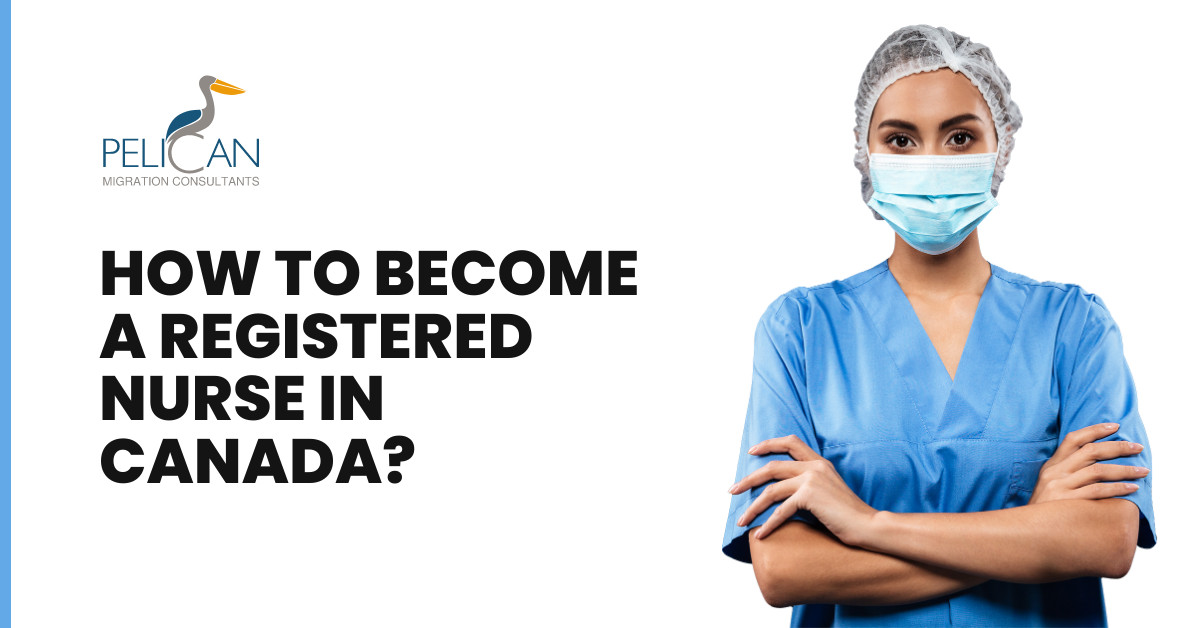
Registered Nurse is one of the top in-demand professions for the next decade. According to the Conference Board of Canada, the requirement for registered nurses (RN) and registered nurse jobs in Canada will increase by more than double.
What is a Registered Nurse?
In Canada, nursing is normally divided into Registered Nurses and Registered Practical Nurses. General, Extended, Special Assignment, Temporary, Emergency Assignment, and Non-Practicing are the six types of registration for nurses.
There is a regulating authority for nursing practice in every province in Canada. They create conditions for entering the profession, as well as ensure the quality of practice and define nursing practice standards.
Becoming a Registered Nurse
A job as a Registered Nurse (RN) can be pursued if you have a strong desire to serve people and are a high school graduate. There are a few steps you must complete before you can turn your dream into a profession, but they are straightforward and you will receive plenty of assistance along the way. The steps to becoming a Registered Nurse (RN) are detailed in this article.
- Post-secondary education will be necessary. All provincial and territorial nursing organizations have agreed that a bachelor's degree is essential for entry into the profession. Evidence demonstrates that baccalaureate-prepared nurses are most qualified to provide Canadians with safe, ethical, cost-effective, and high-quality nursing care. Except for Quebec students, students must get a bachelor's degree in nursing to prepare for a career as an RN.
- You must apply directly to the College of Nurses of Ontario for review (CNO). All nursing graduates who intend to practice in Ontario must be registered with the CNO. Once you've been determined eligible, you'll take the registration exam (after applying).
- You must also pass a separate jurisprudence exam offered by the College, which examines your knowledge and comprehension of the laws, rules, and College by-laws that govern the nursing profession in Ontario, as well as practice standards and guidelines. The RN online Jurisprudence Exam is necessary.
- Additional conditions must be met before you may be "registered" by a provincial or territorial nursing governing agency in Canada.
- Because nursing is a self-regulating profession, it is critical to establish and maintain high standards of practice, not only for patient safety but also for the profession's long-term success. After they begin working, RNs may help by researching and strengthening their nursing skills through best practice development.
Internationally Educated Nurse
Internationally educated nurses (IENs) are welcome in Ontario, and the province even has a government program in place to help them practice and flourish in the shortest time feasible. All nurses, regardless of their background, must complete the same processes as Ontario nursing students, which include, obtaining a license or registration from the Ontario College of Nurses. As part of the registration process, you must take the national registered nursing examination.
What Is the Role of a Registered Nurse?
In Canada, registered nurses offer direct nursing care to patients, provide health education programs, and give consultation services on nursing-related concerns. They work in hospitals, nursing homes, extended care facilities, rehabilitation centers, physicians' offices, clinics, community agencies, corporations, private residences, and public and private organizations, as well as being self-employed.
How to get Registered?
To practice in Ontario, all nursing graduates must register with the College of Nurses of Ontario (CNO) and pass an authorized test. Before the exam, the first step is to apply for assessment directly with the college.
The three types of tests accessible in Ontario are the Canadian Practical Nurse Registration Examination (CPNRE), the National Council Licensure Examination (NCLEX-RN), and the Nurse Practitioner Examinations.
Nursing candidates must complete seven requirements to get a current General Certificate of Registration from the College of Nurses of Ontario (and operate as an RN or RPN in Ontario):
- Completion of a nursing or practical nursing program that is accepted.
- Recent evidence of safe nursing practice.
- The national nurse registration examination was passed with flying colors.
- Fluency in written and spoken English or French is required.
- In the jurisdiction where a nursing program has finished, registration or eligibility for registration is required.
- Under Canada's Immigration and Refugee Protection Act, proof of Canadian citizenship, permanent residence, or permission to practice nursing is required.
- A Canadian Criminal Record Synopsis and a Declaration of Registration Requirements both demonstrate good character and eligibility to practice.
Requisites in English
If you want to work as a nurse in Canada, you must demonstrate that you are fluent in English. The CELBAN – Canadian English Benchmark Assessment for Nurses or the IELTS – International English Testing System are two prominent examinations that can help you verify your English ability. It's important to remember that the test administrators must provide the results of the English exam to the nursing board in Canada.
Benefits of Nursing
- Nursing allows you a lot of freedom in terms of how you may fit your career into your lifestyle. Nurses can work full-time or part-time in a variety of geographic areas and sectors. Nursing offers several specializations, allowing you to practice many times throughout your career. It is also possible to change occupations or obtain an advanced degree while still in the middle of your career and take on a new challenge.
- Registered nurses (RNs) can work in a variety of environments. You may be able to work on the front lines of trauma treatment. Working in public or community health is an option. If you're interested in the legal system, you may work as a nursing consultant. If you enjoy teaching, you may become a teacher or work with children. the options are endless.
- Nurses frequently collaborate with a group of healthcare experts. Nurses may lead the team by organizing and supervising patient care or designing, implementing, and evaluating initiatives. It's a job that gives you a lot of autonomy while still requiring you to collaborate with others and take on leadership roles.
- While every career has its own set of problems, nursing duties and rewards might vary based on the situation. Most nurses will tell you that no two days are alike and that each one has a unique set of difficulties that keep you learning and interested in the field.
- Nursing graduates in Ontario can have longer and better orientation experiences through the Nursing Graduate Guarantee, which provides temporary bridge jobs for up to six and a half months. This one-of-a-kind program assures that graduates are hired by a participating health care institution and get a superior orientation through on-the-job training.
- Nurses will always be in demand, make no mistake. To keep up with the national RN-to-population ratio, Ontario needs at least 17,000 extra RNs. RNs will be in more demand due to changing demographics and a rise in the prevalence of chronic illness. Nurses are also needed to promote and offer preventative health care.
- Nurses in Ontario have the good fortune to work in one of the world's greatest health care systems. Canada has one of the best life expectancies (about 80 years) and the lowest infant mortality rates among developed countries thanks to its publicly supported, not-for-profit system.
- Finally, nurse leadership is critical to the delivery of high-quality patient care. One example is a teacher who is assisting in the development of future leaders. Alternatively, a researcher who mentors young researchers. An administrator who assists and advises employees. Client care is provided by a point-of-care nurse, who also imparts professional expertise. Alternatively, someone who directs and advocates for the creation of healthy policies.
Migrating to Canada
You should determine whether you want to migrate to Canada on a permanent or temporary visa. These are the two possibilities offered to any nurse with foreign education. If you want to keep your permanent visa, you must utilize it for immigration. This is frequently a different procedure, but because you're qualified, you shouldn't have any trouble with it. If you're coming to Canada on a temporary visa, you'll need to secure a job offer from a company, this will even be required to acquire a temporary visa.
Why Us?
The immigration procedure is made more difficult by the fact that immigration standards and laws are always changing; thus, it is advisable to consult Canadian Immigration Consultants who can truly aid and guide you through the complicated process. Our applicants are highly likely to succeed at Pelican Migration Consultants because of our simplified methodology.
You may trust us since all of our visa applications are handled by experienced and knowledgeable immigration specialists. In addition, our counselors are licensed and knowledgeable in the Canadian immigration procedure, especially Canada PR Visa. Our main goal is to provide you with all of the knowledge you need to make educated decisions so that you may continue to live a happy and wealthy life in your chosen nation.


